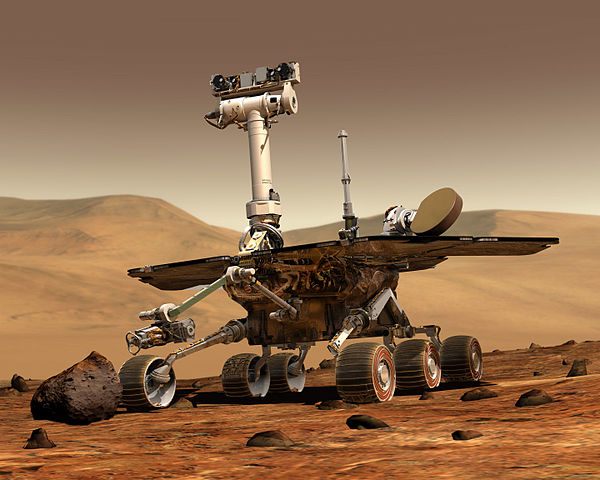'Neurala Brain' Promises To Make Your Drone As Smart As NASA's Mars Rover
Neurala, a company that helped NASA’s Mars rover become “smarter,” announced the “Neurala Brain,” which is a deep learning neural network software that uses a "bio-inspired" approach to mimic how the human brain works. The Neurala software aims to make it easier for developers to build AI-enhanced applications or devices without needing a team of Ph.D researchers and large budgets.
Making AI Easy
Developing AI requires extensive resources, which means it’s not easy for just any company to build and integrate AI capabilities into their products without hiring a team of AI experts and then going through a costly process of deploying, testing, and optimizing that software. Neurala said this process can take years and cost millions of dollars.
“The artificial intelligence capabilities we once saw as futuristic possibilities are becoming realities. Now anyone can easily integrate a deep learning neural network in an app,” said Massimiliano “Max” Versace, Neurala co-founder and CEO. "We've spent years developing The Neurala Brain so that a variety of devices can benefit from bio-inspired brainpower. As we make this technology available to developers for everyday projects, we look forward to witnessing the resulting proliferation of products that can learn, see and act more autonomously," he added.
The Neurala Brain software supports all the popular machine learning chip architectures right now, including Nvidia’s GPUs as well as ARM and Intel chips. The software is written in C++, it is optimized for real-time control, and it gives product developers the following options:
Edge learning on-the-flyEnhanced cloud learningBoth custom and off-the-shelf “brains”Cloud post-processing
Neurala Brain Uses
Neurala believes that the software can be used from toys and drones to robots and self-driving cars. The company said that the Neurala Brain is highly scalable so it can work on any type of hardware, from embedded devices that can benefit from “AI at the edge” to powerful servers in the cloud.
Neurala emphasized that its deep learning software could benefit smart toys because it would increase children’s privacy. All the data analysis (such as voice recognition) could be done locally, so the data doesn’t have to be transmitted to some other company's servers across the world. Those severs may or may not be secure, which could put the sensitive data at risk of being stolen.
Get Tom's Hardware's best news and in-depth reviews, straight to your inbox.
As we’ve seen recently, this is becoming an increasingly common problem. Companies have started to throw “smart toys” on the market that collect everything the children or their parents around them say, including their locations. Some of those toys have been removed from the market for not complying with privacy laws, but even if they required consent prior to obtaining the data, there’s no guarantee that their servers are secure and that the data can’t be stolen by malicious actors.
Neurala also mentioned that Teal Drones, which is said to make the "world's fastest production drones," is one of the first companies to have adopted its deep learning software.
"The Neurala Brain is giving our drones autonomy and control that would not otherwise be possible,” said George Matus, founder and CEO of Teal Drones. "Neurala's real-time, deep learning software is powerful and versatile—and we believe it will find many compelling applications in the hands of the larger developer community,” he noted.
The Neurala Brain SDK can be requested from the company’s website.
Lucian Armasu is a Contributing Writer for Tom's Hardware US. He covers software news and the issues surrounding privacy and security.
-
Didn't the mars rover damage itself by smashing into a rock? Not exactly the smart robot I want.Reply
